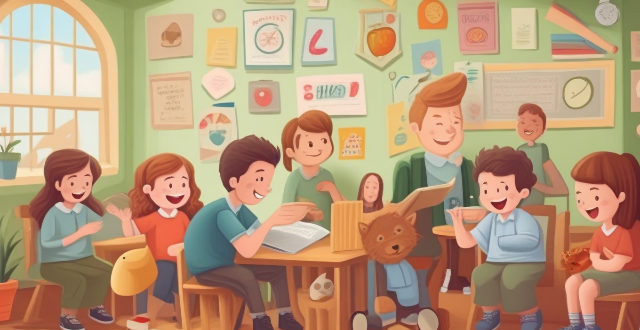Preschool education is crucial for children's future academic success and overall development, offering benefits in social development, cognitive growth, early literacy and math skills, fine and gross motor skills, self-help abilities, school readiness, and parental involvement. It helps children develop interpersonal skills, emotional intelligence, language skills, problem-solving abilities, reading readiness, math concepts, hand-eye coordination, physical fitness, independence, life skills, routine adaptation, classroom etiquette, family partnerships, and parent education. Preschool prepares children for elementary school by nurturing their social, emotional, cognitive, physical, and self-help skills in a stimulating and supportive environment.

What are the Benefits of Preschool Education?
Preschool education plays a crucial role in laying the foundation for a child's future academic success and overall development. Here are some of the key benefits of preschool education:
1. Social Development
- Interpersonal Skills: Preschool provides children with opportunities to interact with peers, teachers, and other adults, helping them develop interpersonal skills such as sharing, cooperation, and empathy.
- Emotional Intelligence: Through social interactions, children learn to recognize and express their emotions, as well as understand and respond appropriately to the emotions of others.
2. Cognitive Development
- Language Skills: Preschool programs often focus on language development, including vocabulary expansion, grammar understanding, and reading readiness skills.
- Problem-Solving Abilities: Children are encouraged to think critically and creatively through various activities, fostering their problem-solving abilities.
3. Early Literacy and Math Skills
- Reading Readiness: Preschool education introduces children to the basics of reading, such as letter recognition and phonics awareness, preparing them for formal reading instruction in kindergarten.
- Math Concepts: Children learn fundamental math concepts like counting, sorting, and pattern recognition, setting the stage for more advanced mathematics later on.
4. Fine and Gross Motor Skills
- Fine Motor Skills: Activities like coloring, cutting with scissors, and using glue help develop hand-eye coordination and dexterity.
- Gross Motor Skills: Games and exercises that involve running, jumping, climbing, and balancing enhance children's large muscle control and physical fitness.
5. Self-Help Skills
- Independence: Preschoolers learn essential self-help skills such as dressing themselves, using the toilet independently, and managing their belongings, promoting self-sufficiency and confidence.
- Life Skills: Children are also introduced to basic life skills like cleaning up after themselves and following routines, which are vital for personal responsibility.
6. School Readiness
- Routine Adaptation: The structured environment of preschool prepares children for the routine and expectations of primary school.
- Classroom Etiquette: Children learn classroom etiquette, including listening when someone else is talking, waiting their turn, and respecting rules and authority figures.
7. Parental Involvement
- Family Partnerships: Preschools often encourage parental involvement in educational activities, fostering partnerships between families and educators that support children's learning both at home and at school.
- Parent Education: Parents may receive guidance on how to support their child's development and create an enriching home environment conducive to learning.
Conclusion
In summary, preschool education offers numerous benefits that extend beyond mere academic preparation. It nurtures social, emotional, cognitive, physical, and self-help skills while setting the stage for a smooth transition into elementary school. By providing a stimulating and supportive environment, preschool lays the groundwork for children to become confident learners who are eager to explore the world around them.